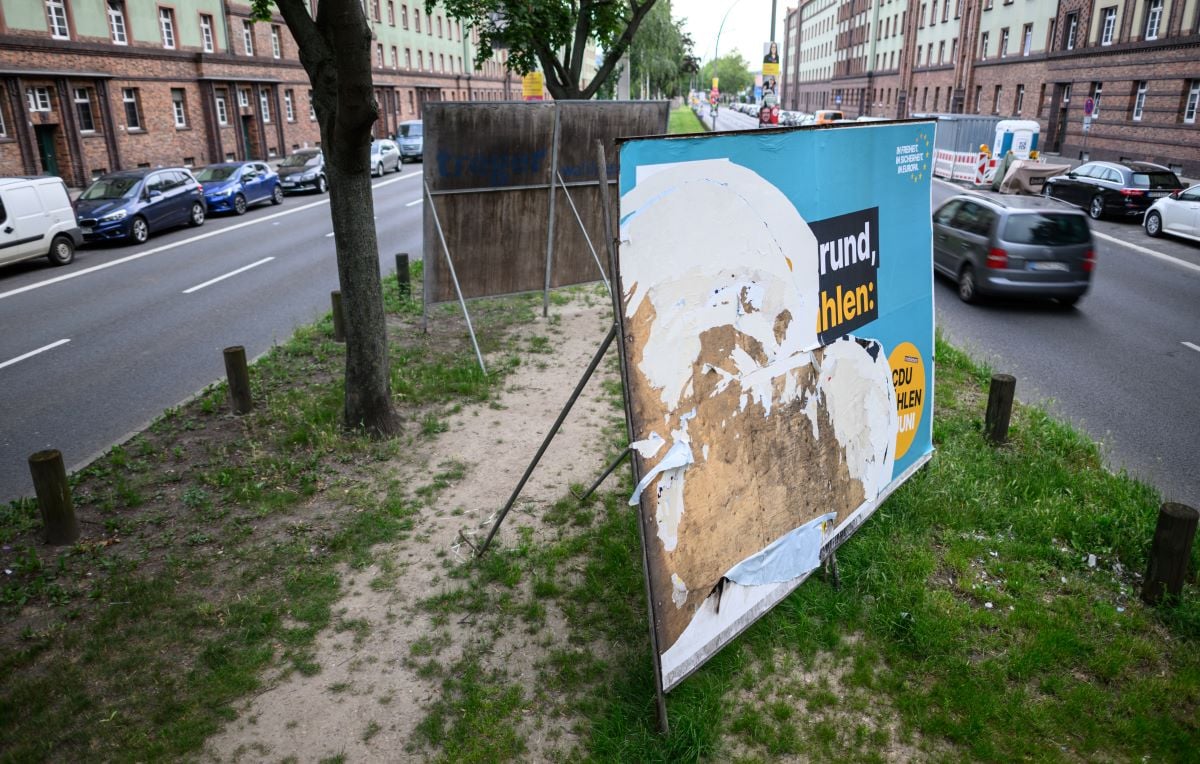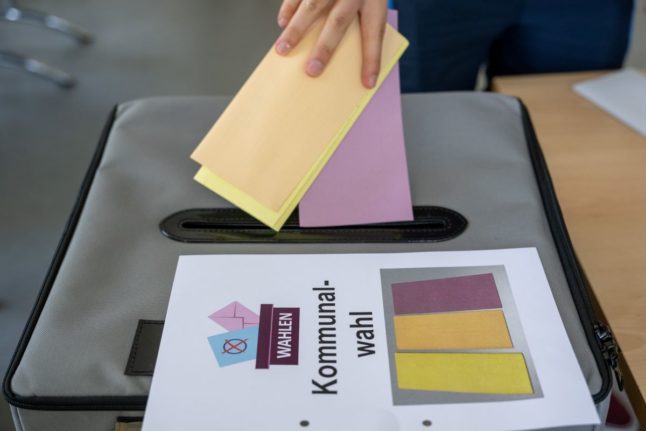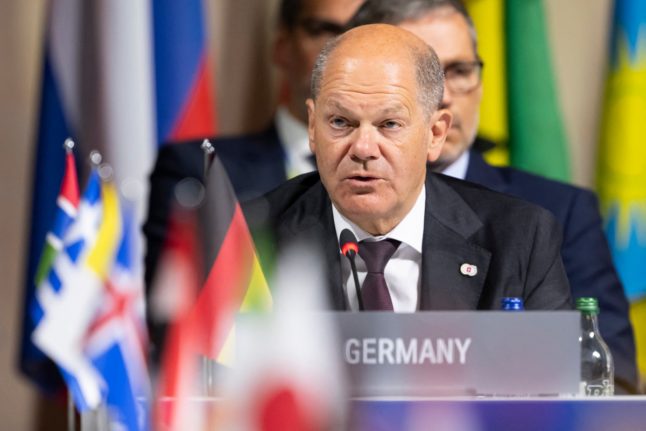In addition to the European elections that took place in Germany on Sunday, there were also local elections in a number of districts and municipalities.
Local elections took place parallel to the European elections, in the German states of Brandenburg, Mecklenburg-Western Pomerania, Saxony-Anhalt and Saxony. Additionally, city, municipal and district parliaments were elected in Baden-Württemberg, Hamburg, Rhineland-Palatinate and Saarland.
In local elections (Kommunwahl ) in Germany, political representatives for the local councils and town councils, as well as mayors and district administrators are elected.
Exit polls and early vote counts confirm that the AfD is ahead in Brandenburg, Mecklenburg-Western Pomerania and Saxony-Anhalt.
In Thuringia, however, AfD candidates lost all of their district administrator run-off elections.
The results will be subject to much analysis. Coming three and a half months before state elections in Thuringia, Saxony and Brandenburg, the local results are seen as an omen of the change that could be expected to come to some of Germany’s state coalition governments.
Right-wing AfD wins Brandenburg for the first time
After counting all polling districts, the AfD won local elections in the state of Brandenburg with 25.7 percent of the votes. Compared to the election five years ago, this was an increase of 9.8 percentage points.
The CDU and SPD followed in second place.
In Brandenburg, elections took place in 14 district councils and the city councils of the four independent cities. Overall, the CDU improved by one percentage point to 19.3 percent. Meanwhile the SPD lost one point, compared to 2019, to land at 16.6 percent. The Left Party landed at 7.8 percent, having lost 6.3 percentage points.
The Greens came to 6.7 percent, with a minus of 4.4 points. The Free Voters achieved 7.4 percent, 1.1 points more than in 2019. The Sahra Wagenknecht Alliance (BSW) did not run in the local elections under this name.
AfD also grows in Mecklenburg-Western Pomerania
In the local elections in Mecklenburg-Western Pomerania the AfD displaced the CDU as the voters’ favourite. After counting all 1978 polling districts on Monday morning, the AfD reached 25.6 percent of the votes.
This means that the party has almost doubled its share of the vote compared to the previous municipal election. With slight losses, the CDU ended up in second place with 24 percent.
The Left Party, which had been the second strongest force in the local elections five years ago, plummeted to 8.8 percent.
The SPD also suffered losses, reaching only 12.7 percent instead of 15.4 percent. The Sahra Wagenknecht party BSW achieved 6.1 percent, although it had only sent candidates into the race for the district councils in three of the six districts and in Rostock. The Greens received half as many votes as last time, from 10.3 to 5.5 percent.
With 2.8 percent, the FDP is only just ahead of the Free Voters, who came to 1.8 percent. At 64.4 percent, voter turnout was higher than in 2019, when it was 57.2 percent.

AfD stopped in run-off elections in Thuringia
In Thuringia run-off elections were held in seven districts and the independent cities of Erfurt and Gera on Sunday, with AfD candidates losing all of them.
Thus, Robert Sesselmann, AfD politician who won the office in Sonneberg last year, is still the party’s only Thuringian district administrator.
The Altenburg region had the closest race, with AfD candidate Heiko Philipp running against CDU candidate Uwe Melzer. In the end, Philipp lost, with 45 percent of the vote in the run-off. He had placed just ahead of Melzer in the first round.
All of the other eight AfD run-off candidates lost with lower shares of votes than Philipp.
Despite recent setbacks the AfD makes gains in the East
The AfD also won local elections in Saxony-Anhalt, and as of Monday morning, it is leading a number of elections in Saxony
The Office for the Protection of the Constitution (BfV) classifies the AfD state association as a suspected right-wing extremist case.
The party has also lost favour in Germany-wide polls recently following a series of scandals, including the party’s top EU candidate facing investigations for suspicious links to Russia and China, and also suggesting that not all officers in the Nazi’s SS had been criminals.
READ ALSO: EU elections – Why has Germany’s far-right AfD party crashed in the polls?
But the party’s recent scandals haven’t done much to dampen its success in Germany’s eastern states, where far-right and far-left parties have historically found more favour.
Sociologist and extremism researcher Matthias Quent told the German Press Agency (DPA) that similar results can be expected in the votes in September in Saxony, Thuringia and Brandenburg, “but that doesn’t mean that there isn’t still room for manoeuvre”.
The AfD has made many “territorial gains” in the east and strengthened its municipal roots, Quent said, adding that If the AfD is the strongest parliamentary group, it is even harder to do politics without it.
“This is also the strategy of normalising oneself via the local parliaments in such a way that cooperation at the state level will then be within reach in the next instance,” he said.
Quent noted that demonisation of the AfD “quite obviously tends to cause dissonance among citizens” or at least leads to the right-wing populists being able to “mobilise” their potential.
“This is an extremely difficult situation,” he added, noting that other parties are left defending the values of the state constitutions and the Basic Law.
Quent emphasised that there is a contingent of right-wing AfD voters that won’t be swayed, “even through good politics”.
However, the new election successes cannot be explained by this group. Many workers do not feel represented by the other parties and therefore make their crosses with the AfD, according to Quent.
Liberal parties have failed to connect with voters’ concerns
Mainstream parties in Germany are looking at results from local elections, along with the European elections. Bundestag Vice President Katrin Göring-Eckardt sees the outcome as a call to the traffic-light coalition to focus more on questions of justice in its policies.
Apparently, the coalition has not succeeded in making it clear that measures in times of great upheaval must be linked to the fact that things are fair, said the Green politician on Monday on Deutschlandfunk.
Adaptation measures to climate change would mostly affect those “who don’t have the thick wallet”. In this context, Göring-Eckardt warned against party-political profiling. The necessary steps are not about whether a party looks good, but about how to make the adjustment together.
Well before the elections, some had warned that Germany’s traffic-light parties were failing to connect with middle and working class voters on social issues.
READ ALSO: INTERVIEW – ‘Failed climate policies are fuelling far-right politics in Germany’
Federal Agriculture Minister Cem Özdemir admitted in the ZDF Morgenmagazin that when it comes to questions of security and migration, the Greens are not perceived as having good answers.
“The key word is trust. The Greens have lost trust,” admitted the Green politician and former MEP. His party should not gloss over the election result. The Greens’ claim is to “reach out” to the centre of society. This can only be achieved if the concerns of “normal people” are put at the centre.
With reporting by DPA.



 Please whitelist us to continue reading.
Please whitelist us to continue reading.
Member comments